1899-1900 Chinatown Plague and Fire
Plague
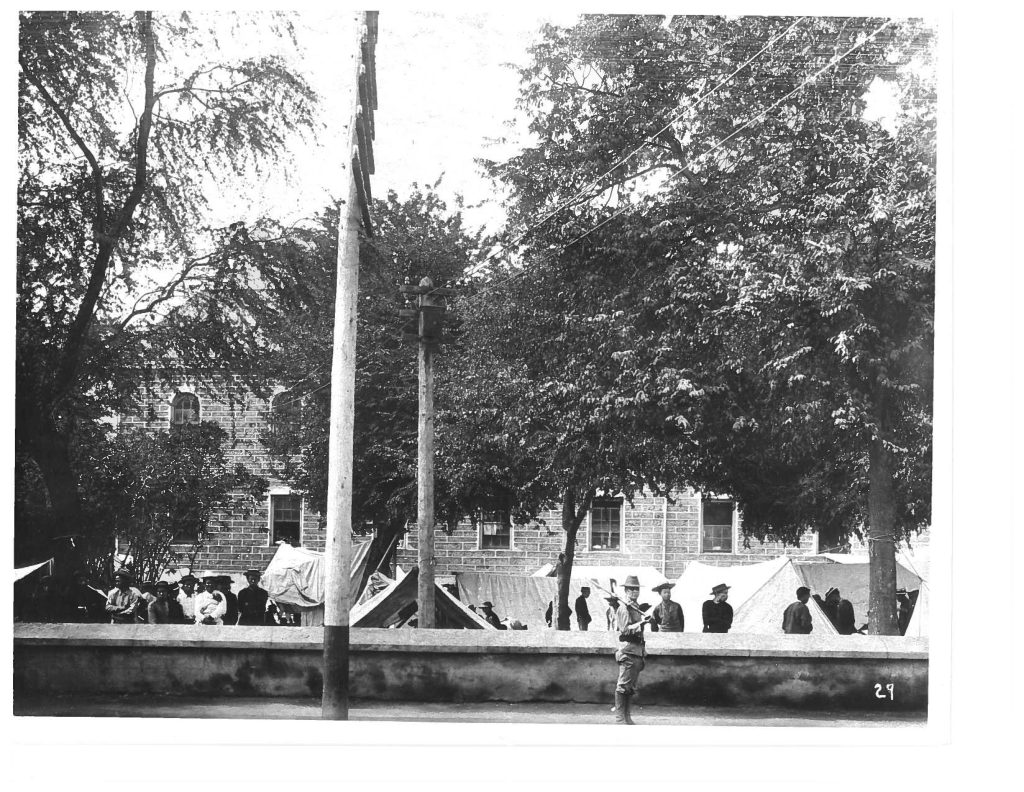
Refugee at the Kawaihao Church grounds
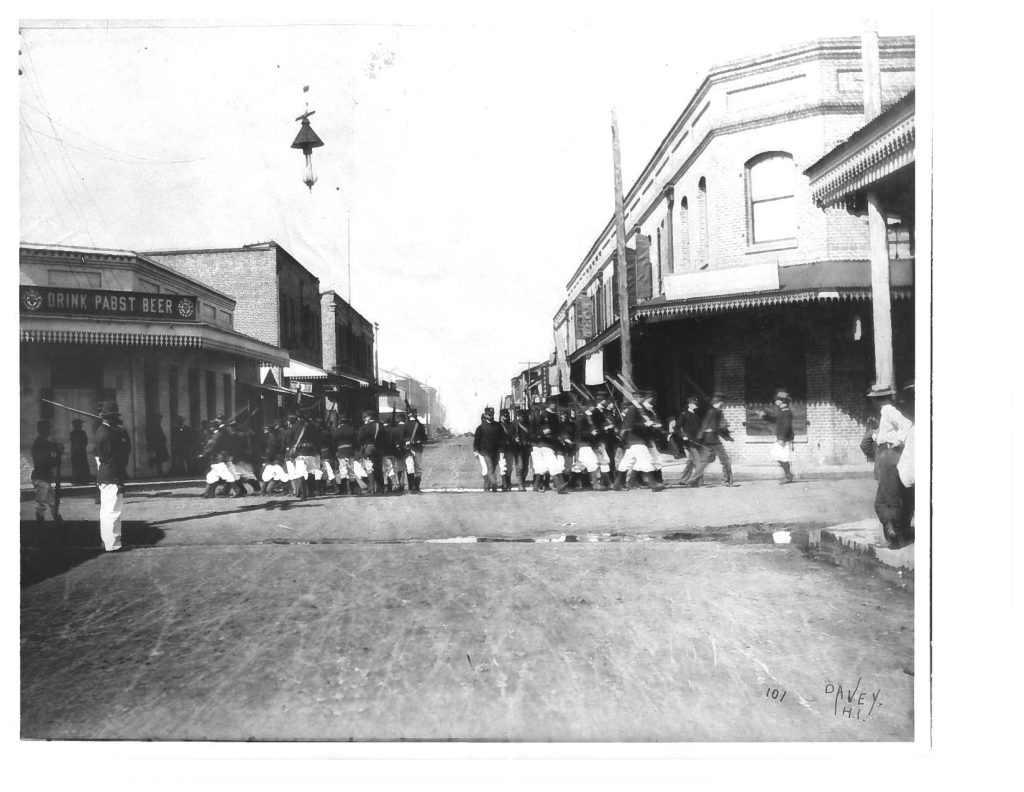
January 1900 during the bubonic plague
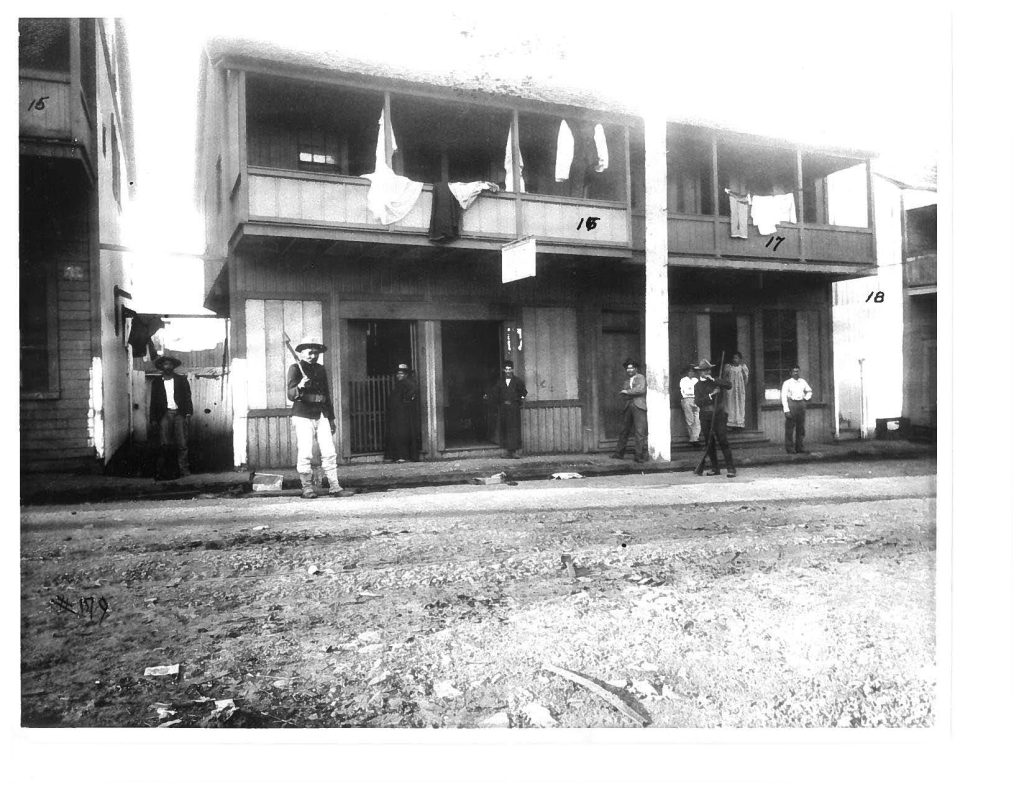
S. Nishi- Nuuanu near Beretania
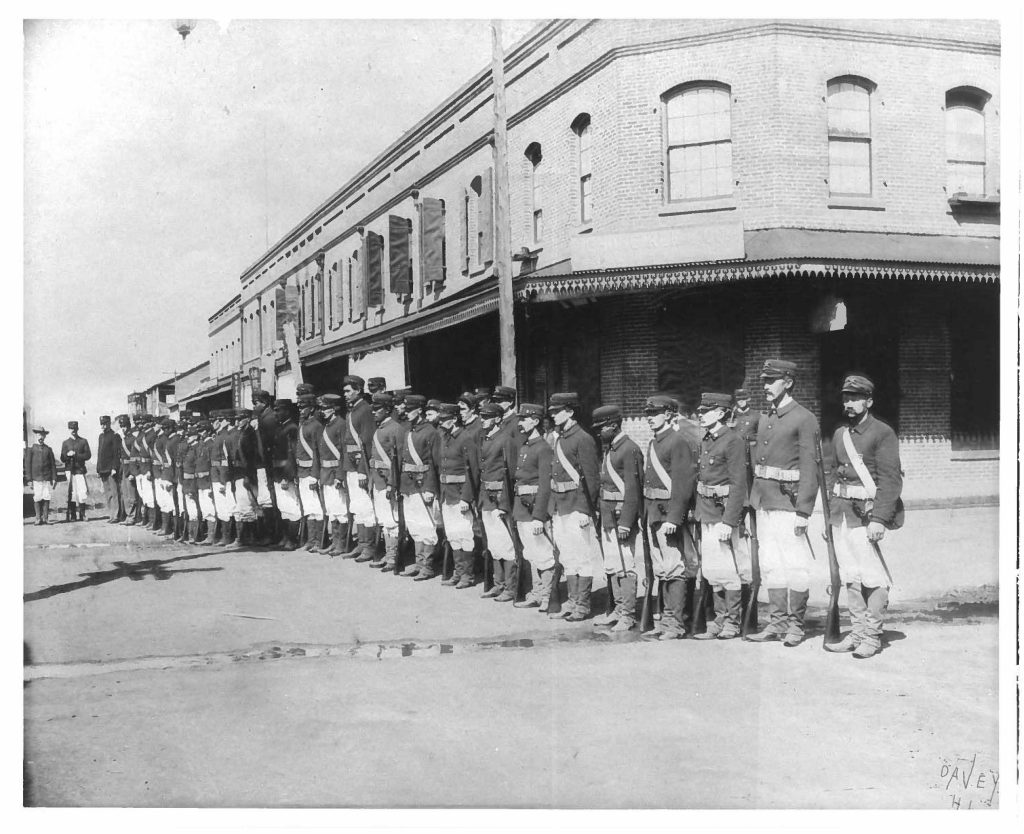
Jan. 1900 during the bubonic plague
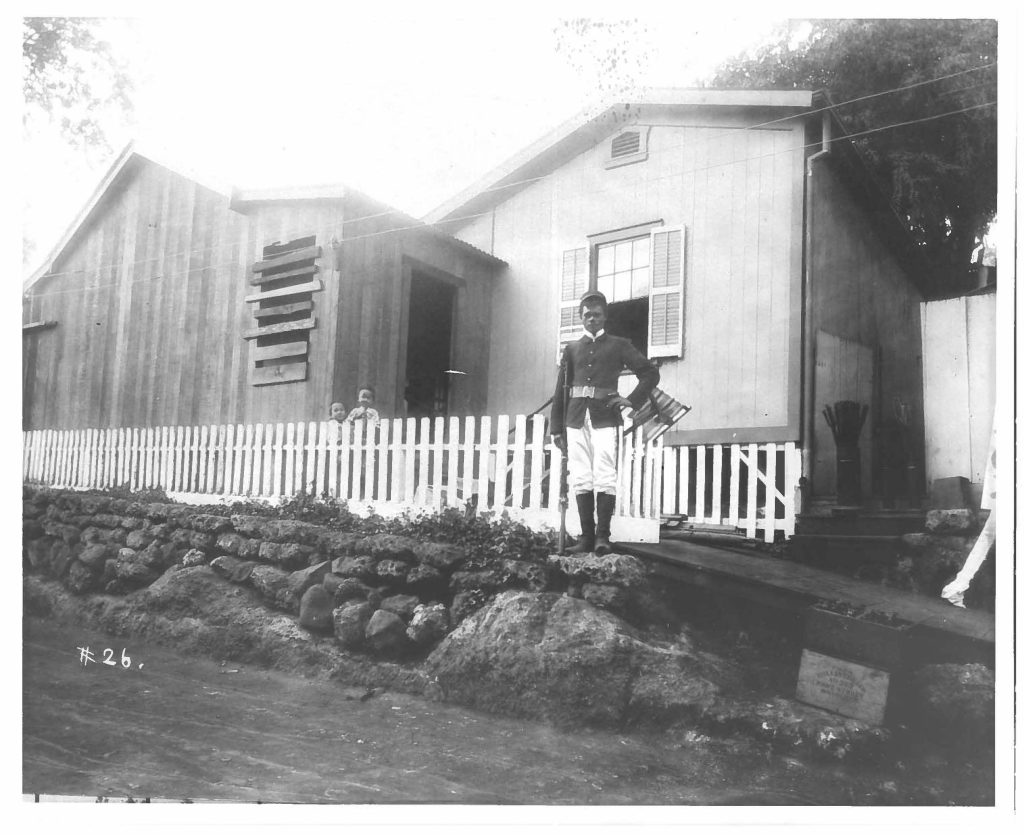
This photo taken for the Board of Health
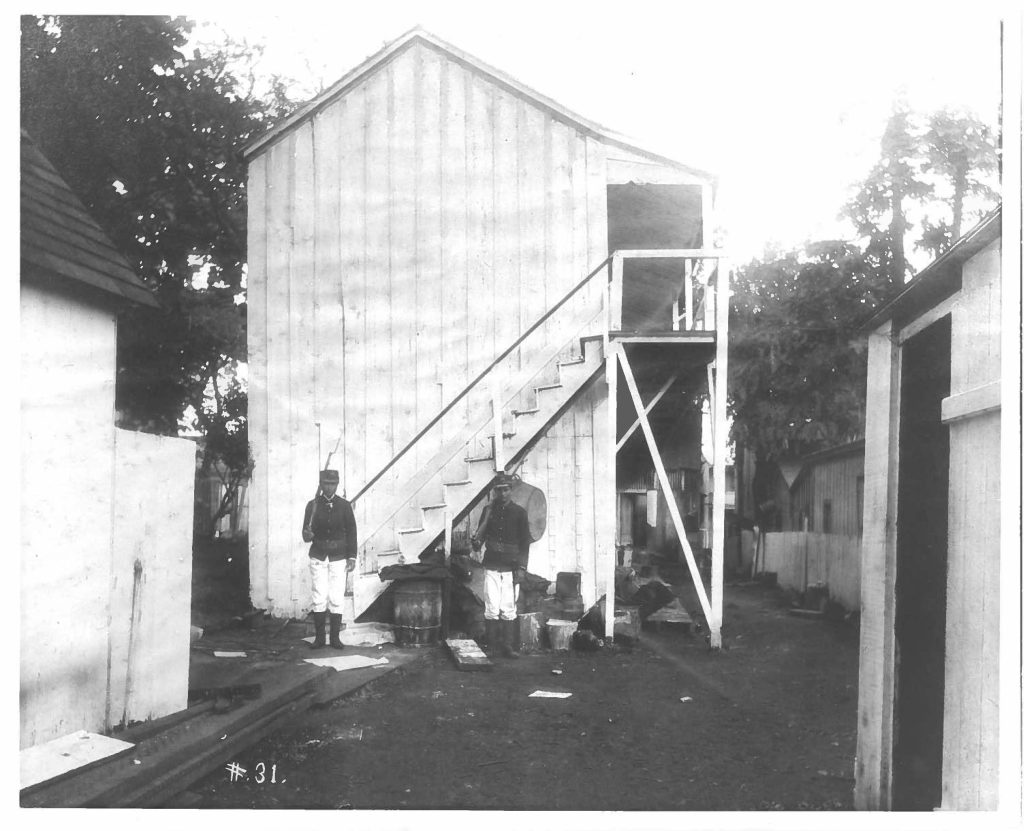
This photo taken for the Board of Health
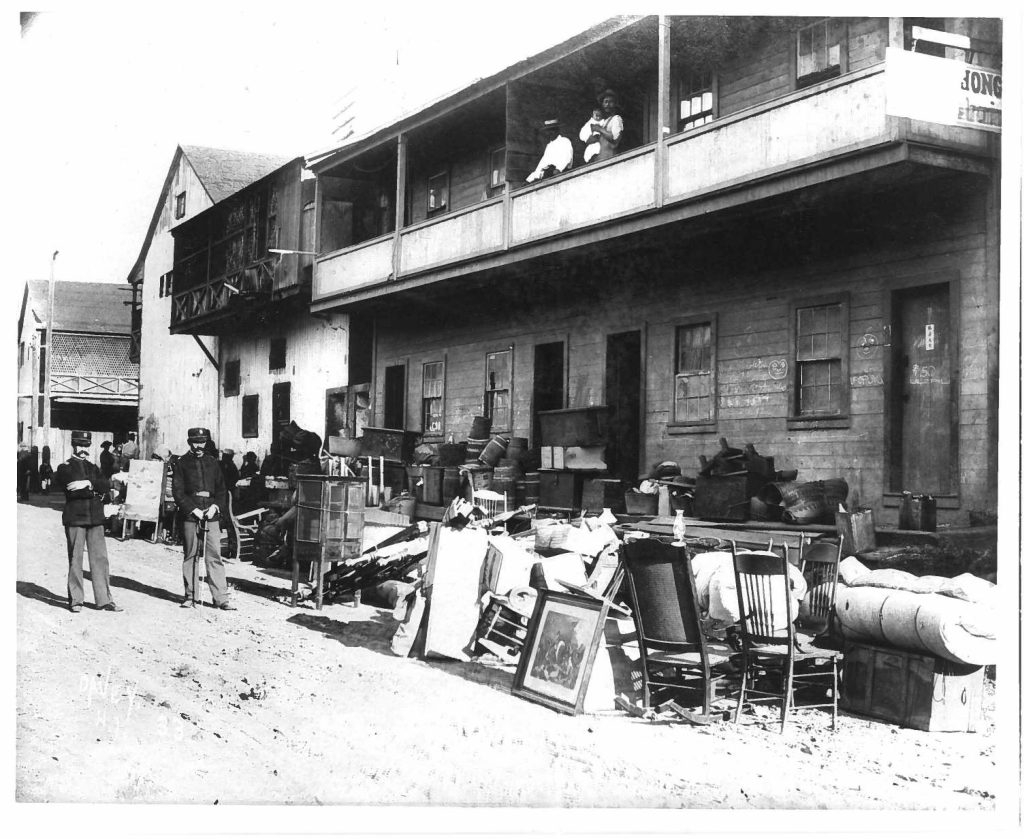

December, 1899 to January, 1900, 1st Regiment of Infantry, Colonel J. Walter Jones Commanding, acted as quarantine guard during a plague epidemic in Honolulu.
– 1923-1924 Annual Report pp.17
It was fortunate that the National Guard kept up its morale and efficiency, for in December, 1899, a cholera epidemic broke out in the Chinese section of Honolulu.’ The Public Health authorities established a quarantine but by December 12th the situation had become so serious that the government decided to call out the National Guard. At first only volunteers were called for and some two hundred and fifty responded. Later on the entire regiment was ordered on active duty.
The volunteers were told that they would be required to do only guard duty under arms and would not be sent into the plague-infected areas as inspectors unless they volunteered for the work. Volunteers were called for and to a man those present stepped to the front, although the plague was an infectious disease which could easily be contracted through carelessness. That afternoon details were sent out to establish guards around known infected areas, and the guards were maintained for over a week. At the same time a detail of twenty-six volunteers started a house-to-house inspection and worked until after dark. That evening Chinatown was declared under Martial Law and a line of sentinels extending over a mile were posted around the area and maintained for eight days. During the next few days great difficulty was encountered with people trying to break quarantine, so that the entire regiment was ordered out on December 13th, and a more strict guard established.
By December 19th the plague had apparently been brought under control and the guards were for the most part dismissed. Only eighty-eight men under Captain Ludewig and Lieutenant Klemme were retained to see that order was maintained. On the 26th this guard was reduced to twentyfour men and preparations were made to turn the affair over to the police. However, on December 28th the plague broke out more violently than before and the National Guard was again called out to maintain the quarantine. The volunteers were kept on active duty until January 24, 1899, at which time the plague was really over.
Although the danger from the plague was over, the National Guard still was not permitted to return to civilian life. all January 20th a great fire had broken out in Chinatown and many of the residents had been forced to evacuate their homes. To care for them and to prevent them from starting another epidemic, a Detention Camp was established at Kalihi and placed under the control of the National Guard. The camp grew so large that all six volunteer companies were required on duty during its month’s existence. The camp, commanded by Lieutenant Colonel Charles J. McCarthy, National Guard of Hawaii, provided for the feeding, housing and medical attention of the inmates.
The National Guard suffered three casualties during this period. Two men contracted pneumonia white standing guard in the rain, and one man, Corporal Kanehoo, caught the plague and died in the Barracks. There was naturally a great deal of confusion and trouble during the plague epidemic. There were innumerable attempts to break quarantine and over one hundred arrests had to be made. The fire caused a general panic and the terrified citizens had to be quieted. Then, too, the Guardsmen were somewhat worried by the possibility of their contracting the disease. When the Detention Camp was established, the equipage of the National Guard was found to be insufficient to care for the quarantine and an appeal was made to the United States military authorities for the necessary tents, blankets and clothing. Fortunately the authorities had a sufficient amount of equipment on hand and it was issued to the National Guard. This was the first help that the National Guard had received from the United States.
Despite all these handicaps the National Guard did its job well and it was only through its untiring efforts that the situation was prevented from becoming more serious than it did. Although there were regular United States troops present who were better equipped to handle the situation, the National Guard was called upon to do the job. It was more conversant with local conditions and knew how to handle the people, many of whom were Orientals.
– History of the Hawaii National Guard pp.32-33
Fire
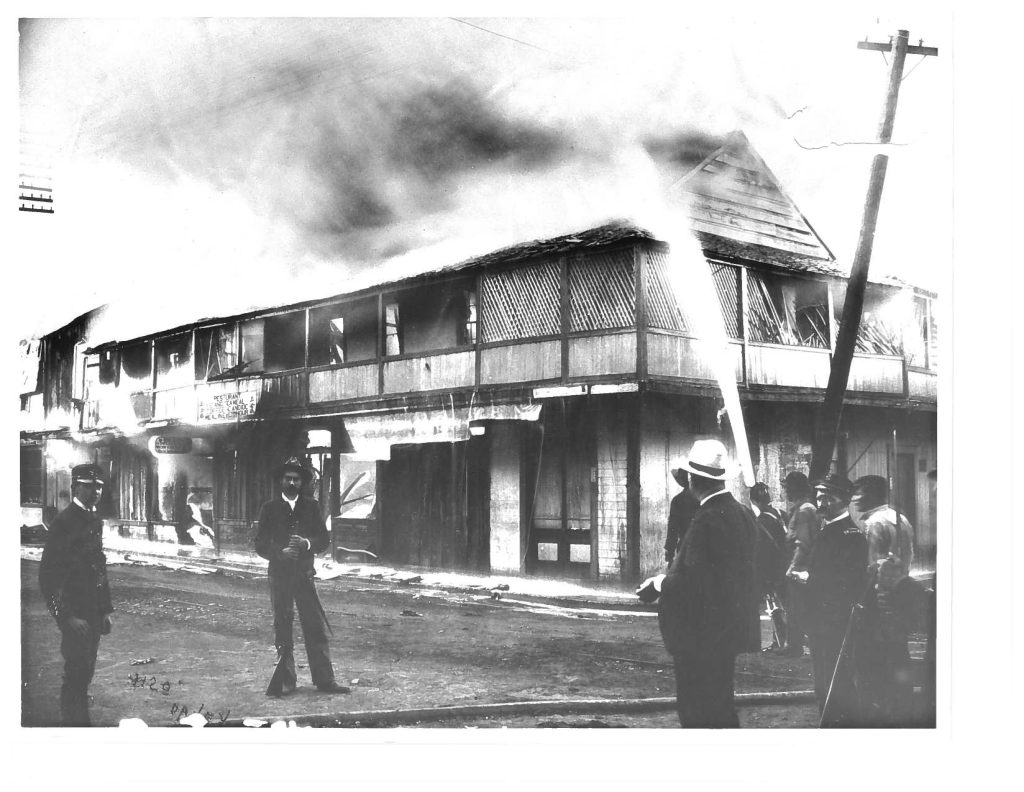
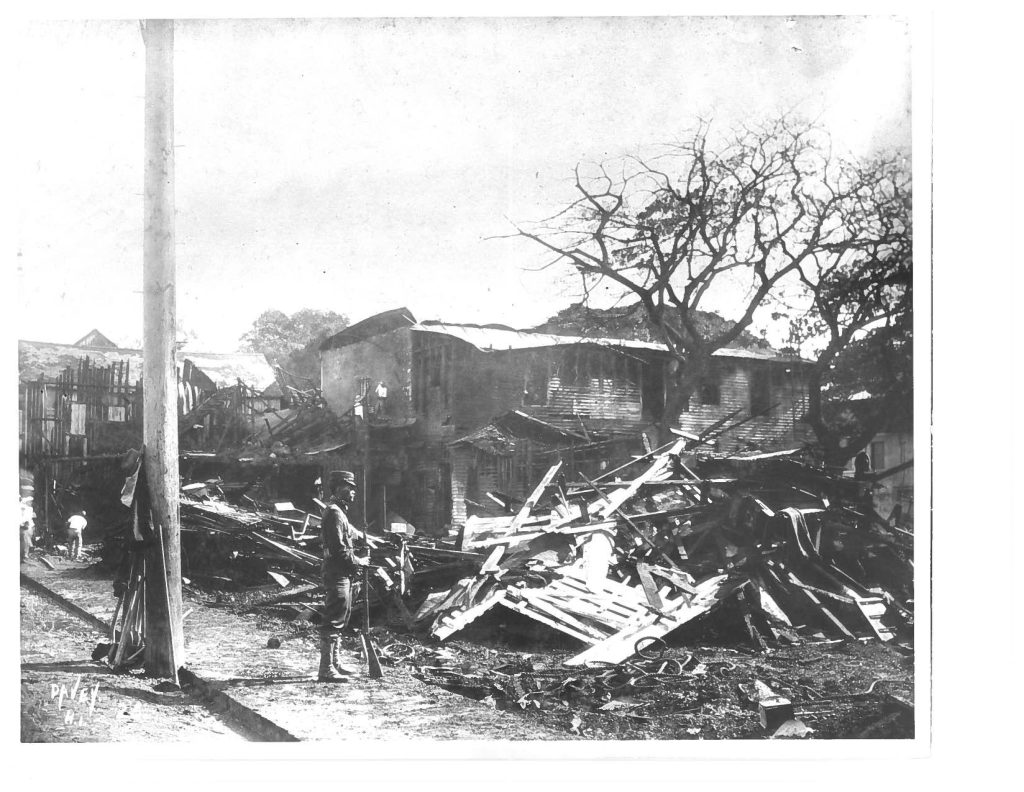
(Pictures from Hawaii National Guard Archives)